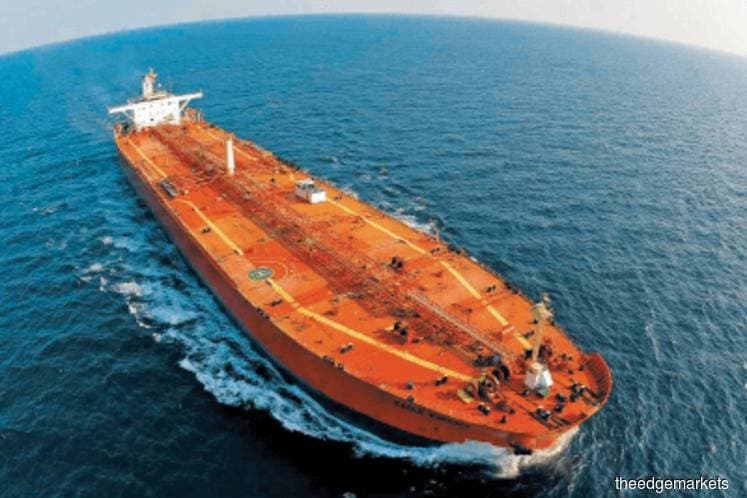
This article first appeared in The Edge Malaysia Weekly on April 27, 2020 - May 3, 2020
A recent decision on an arbitration between MISC Bhd and Shell that started in 2016 will likely impact the shipping giant with a one-off impairment of over US$550 million in the first quarter ended March 31, 2020 (1QFY2020).
The Asian International Arbitration Centre ruled that MISC is liable for defects in the Gumusut-Kakap semi-floating production system (semi-FPS) it provided to Shell in 2014.
The arbitration was between MISC’s wholly-owned subsidiary Gumusut-Kakap Semi-Floating Production System (L) Ltd (GKL) and Sabah Shell Petroleum Co Ltd (SSPC), according to an April 10 filing by MISC.
GKL had claimed additional lease rates, payment for completed variation works and other associated costs under the contract from SSPC.
SSPC filed a counterclaim for alleged defective work, alleged limited functionality of the semi-FPS and liquidated damages, among others.
Under the final award, the tribunal decided that GKL is to be liable for the costs incurred to rectify defects in the project.
SSPC was awarded a sum of US$352.44 million with interest.
The tribunal also reduced GKL’s previous two adjudication awards, which was awarded in 2016, by US$133.34 million, from US$265.9 million previously.
The amount to be booked by MISC is estimated at around US$550 million, after including the accrued compounded interest on the sum.
On Friday, MISC held an analyst briefing to provide further details on the episode. Subsequently, its share price dove by over 7% before rebounding, as the market assessed the impact of the arbitration decision.
An analyst who tracks the shipping giant says an impairment will likely be booked by MISC in 1QFY2020, adding that the company will likely appeal against the decision.
The arbitration award to SSPC represents some 49.5% of MISC’s RM1.93 billion operating profit in the financial year ended Dec 31, 2019 (FY2019). It risks turning 1QFY2020 into a loss-making quarter. The group made a net profit of RM510.5 million in 1QFY2019, on revenue of RM2.28 billion.
MISC was not immediately available to comment. In the filing, it said it is still assessing the impact on its FY2020 books. “GKL is advised that the company has legal grounds to challenge the award and is considering further action,” it says.
Tanker charter rate skyrockets
Oil demand has tumbled as a result of travel restrictions worldwide to contain the Covid-19 outbreak. Consequently, the market is flooded with the black gold and storage tankers are in high demand to store the stockpile that is building up.
Spot tanker charter rates have increased by up to 15 times to US$300,000 a day since March. Because of the high storage costs, the recently expired West Texas Intermediate futures contracts plunged below zero to negative US$40 per barrel as very few parties wanted to take the delivery of the barrels.
Being a major oil tanker operator, will MISC be able to rack up a profit? Investment analysts are divided in their views.
“Every US$1 difference between current and future [crude oil] prices can drive tanker charter rates by up to US$55,000 per day,” says a market observer.
Analysts’ views differ as 28% of MISC’s petroleum fleet under its subsidiary AET Tankers Pte Ltd is on spot contract while all of its very large crude carriers (VLCCs) are on long-term charters.
“We do not expect any substantive near-term earnings impact as MISC has already secured long-term agreements with clients for its VLCCs,” AmBank Research says in an April 8 note, where it called “hold” on the shipping group with a fair value of RM7.80.
In contrast, CGS-CIMB Research, which has a “buy” call with a target price (TP) of RM8.65, expects positive VLCC tanker rate upside to have a positive spillover impact on Suezmax and Aframax tanker rates.
“AET profits bear a strong correlation to spot Aframax freight rates as its Aframaxes are currently 56% exposed to the spot market. AET’s Suezmax fleet has 26% spot exposure,” it says in a March 22 note.
MISC operates 81 vessels, including 14 VLCCs, six Suezmax tankers and 34 Aframax tankers, according to its annual report. The division contributed 18.7% to MISC’s FY2019 operating profit and 48% to its RM8.92 billion revenue.
Dim prospects for LNG segment
While tanker rates are sky high, the group’s liquefied natural gas (LNG) tanker segment might face a different prospect.
This segment, which contributed 61% to its FY2019 operating profit, faces looming risks as Covid-19 dampens demand — with force majeure incidents being invoked in China and India.
MISC’s LNG fleet mostly serves its parent company Petroliam Nasional Bhd, which holds a 57.56% stake. The group operates 29 LNG carriers and two floating storage units (FSUs), with 90% of its fleet on long-term charter.
“Contracts for two of its vessels are expected to expire in 2Q/3Q2020, with another two in 1Q2021 with an extension option,” Affin Hwang Capital Research says in an April 8 note.
“We foresee lower LNG yields on the back of downward revision of existing contractual terms or outright non-fulfilment of contracts,” it says, while maintaining a “sell” call with a TP of RM6.20 on the counter.
MISC had nine “buy” calls, four “hold” and one “sell” recommendation among 14 analysts covering the group, with TPs ranging from RM6.20 to RM9.36 for an average of RM8.22. The stock closed at RM7.80 last Friday.
Save by subscribing to us for your print and/or digital copy.
P/S: The Edge is also available on Apple's AppStore and Androids' Google Play.